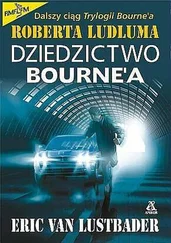Just ahead of them, off the driver's-side fender, rode the gray BMW. Jack could see that the expert driver was jockeying for the perfect position, to enable the shooter to have a clear line of fire. The professionals were leaving nothing to chance.
The scenario was clear in his mind, the playing field existed in his world, and there was no one better at its mastery.
Jack's eyes flicked to the rearview mirror, his mind performing a thousand calculations in the blink of an eye. He braked suddenly. The Toyota behind them screeched to slow down, rear-ended them at a reduced speed, jouncing them sharply against their seat belts, then back against the seats. In the following moment, when most people would be in shock, Jack's brain figured vectors, speeds, distances. Then he slammed the BMW's right rear fender.
The BMW spun clockwise; then everything happened very quickly. Jack put on speed. The BMW careened out of control, veering sharply to the left, its rims sparking off the wet tarmac. Jack caught a glimpse of the driver desperately scrambling to regain control, the shooter off-balance, white-faced. Then the BMW struck the left-hand guardrail at speed, its rear end rose up angrily before the car punched through the rail, spun crazily down the slope at the side of the parkway.
A moment later, flames flickered and an explosion of debris geysered up as the gas tank cracked. Jack floored the car, heading for Kansas Avenue NE, smack in the middle of his past.
ALLI CARSON lay drowsing in the pantry, on the folding cot Kray had provided for her. The sheets and blanket were tucked up around her chin. Her face was flushed but calm. Kray, standing over her, emptied a syringe into the crease behind her left earlobe, where the puncture would never be noticed. On the counter below Carrie's lair was a full syringe, capped to keep the needle sterile. Kray dropped the empty syringe in the hazmat waste bin, bent over Alli, began to whisper in her ear.
Alli's mind was adrift on a cloud that shape-shifted first into her favorite toys as a child: Splash the dolphin, Ted the giraffe, and Honey the teddy bear. They romped and laughed as she played with them, before dissolving into other images. At first, these images were jumbled, smeary, and confusing, but presently they resolved themselves into scenes intimately familiar to her. Specifically the incidents that more or less defined her life up to the moment she was abducted.
Her mind brought her back to just before she was diagnosed with Graves' disease. At thirteen, she suffered moods so black, her mother took her to a psychologist. She referred Alli to her physician, who in turn referred her to an endocrinologist, who finally made the diagnosis. Her pituitary gland was affected, her eyes bulged slightly, her mood swings were vicious, the bouts of anxiety left her limp and exhausted, drenched in her own sweat. There were times when she was sure she was losing her mind. Lying on her bed, she would stare up at the ceiling, lost in the blackness of the universe, the essential futility of life. Future, what future? And why would you want one, anyway? Her heart galloped faster and faster until it seemed as if it would burst through her chest. Methimazole prevented her thyroid from producing too much hormone, so gradually the anxiety loosened its grip on her, her heart rate returned to a normal trot, her eyes ceased to bulge.
These memories, running one over the next, vanished into a pearly mist, only to be replaced by visions of the summer when she went to camp for the first and only time. She was fifteen. She'd begged her parents to let her go, not only to separate herself from the suffocating atmosphere of a senior senator's entourage but also in order to get a sense of how she'd do on her own. She needed a venue where she could explore who she was. She met a boy-an unutterably handsome boy from a wealthy family in Hartford. His father owned a huge insurance firm that generated obscene profits. His mother was a former Ford model. All this Alli learned from the boy, whose name was Barkley, though with the particular cruelty of teens, everyone called him Bark. Well, almost everyone; the kids on work programs at the camp in order to pay for the privilege of being there had another name for him, Dorkley.
That a portion of the community-so tight-knit, it was incestuous-reviled Barkley only endeared him to Alli. He was a misfit just like her; she could relate to his being marginalized. After dinner, they took walks in the long cobalt twilight, hanging at the edge of the softball field or on the sloping muddy shoulder of the lake. Often they stared as one at the raft moored in the center of the lake. They sat close together, but they never brushed shoulders, let alone held hands. And yet a certain magnetism, plucked out of the droning summer air, drew them, caused them perhaps to feel the same longing, an ache deep down in a place they could not identify. Once, they spoke about the raft in an argot they understood better than anyone else at camp-as Oz, Neverland, the other end of the White Rabbit's hole, heavily romanticized worlds that were home to Others, the people so special or different, they didn't belong in Kansas or London or the English countryside.
That night they spoke while the last smears of color faded under the onslaught of darkness. The air grew chill and damp, and still they did not move. Their talking had come to an end; there seemed nothing left to say. It was difficult for Alli to remember who began to strip first. In any event, there came a time when they stood in their underwear side by side, feet in the cool, still water. They heard a bullfrog out on the lake, saw water spiders skimming the surface. All the lights were behind them, up the hill where the buildings were situated. Here their own world began, and Alli, with a shiver of intent, pushed aside her anxiety about her nude body as she slipped out of undershorts and bra.
Wading into the water, arms held high, they lay down in the deliciously cool water, as if it were a bed. Alli did an excellent crawl out to the raft, arrived there seconds before Barkley. She hauled herself, dripping, from the water; he was right behind her.
At first they lay on their stomachs, out of modesty perhaps or because this was the way most children slept. They were still more children than adults, knew it, clung to its safety.
As a certain fear flooded her mind, Alli said, "I don't want to do anything. You know that."
Barkley, head on folded forearms, smiled slowly. "Neither do I. We're just here, right? Just us. We've left all the knuckleheads behind."
Alli laughed softly at how sweetly he used words that were so, well, dorky. It occurred to her that his very unhipness was another reason she liked him. Preening boys, showing off their cool in the most obvious and ostentatious manner, had a tendency to buzz around her because they wanted something from her father, if only to bask in the penumbra of his celebrity. Proximity to power was a potent aphrodisiac for boys of that age, and would be, until they had gathered their own. Later in life, it would be the women who'd be buzzing around these boys' moneyed hives.
They lay side by side on their softly rocking island, silent, listening to the slap of rope against the raft's pontoons, the lap of water, and in the humming night the occasional bellow of the bullfrog, the call of a skimming loon on its way to nest for the night, the eerie hoot of an owl high overhead. Who turned first? Alli couldn't recall, but all at once they were lying on their backs, their eyes focused on the spangled blackness of the sky, not on the pale flesh beside them, a blobby blur in the corners of their eyes.
"I wish we were up there," Barkley said, "on a spaceship heading for another planet."
Читать дальше












